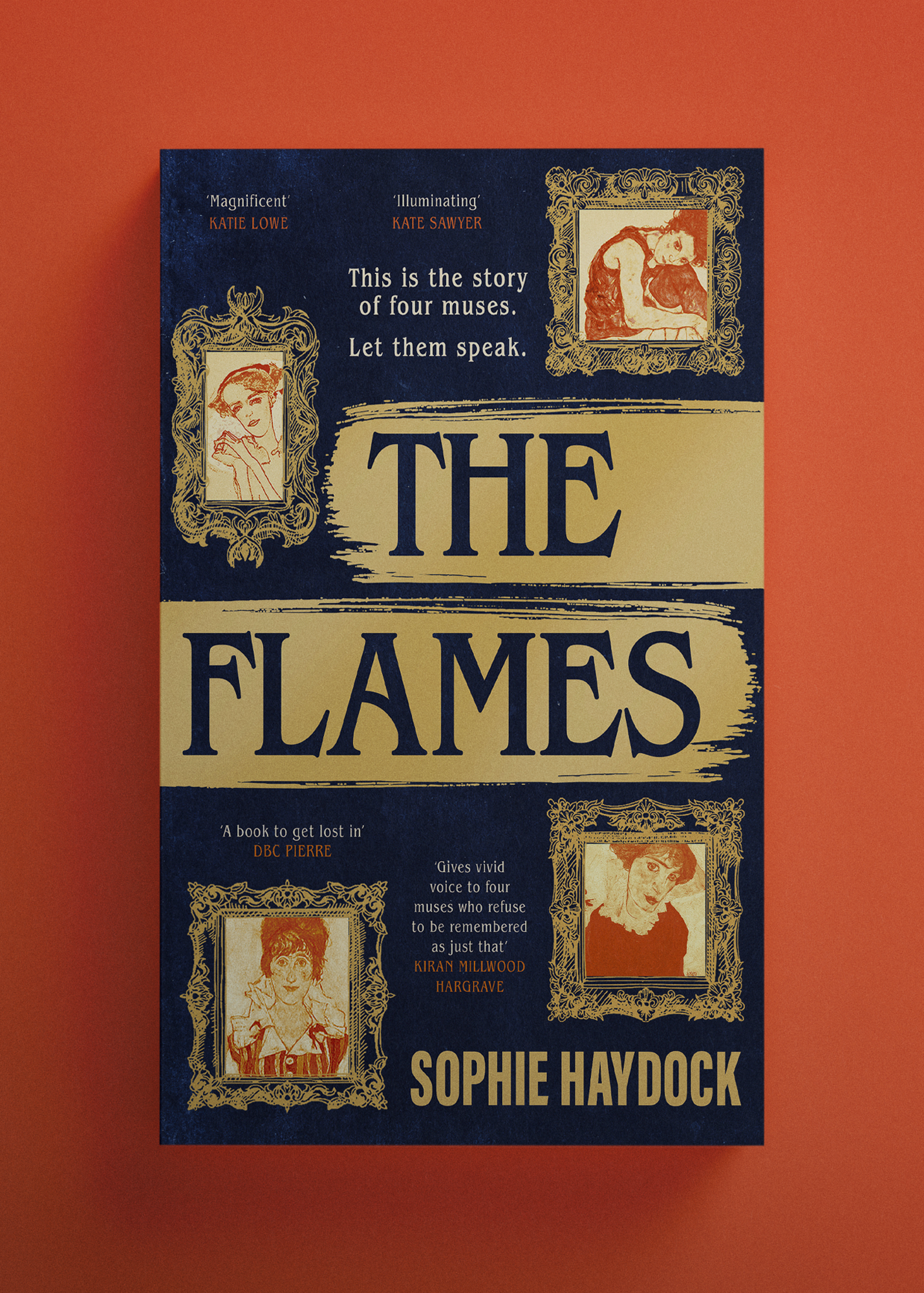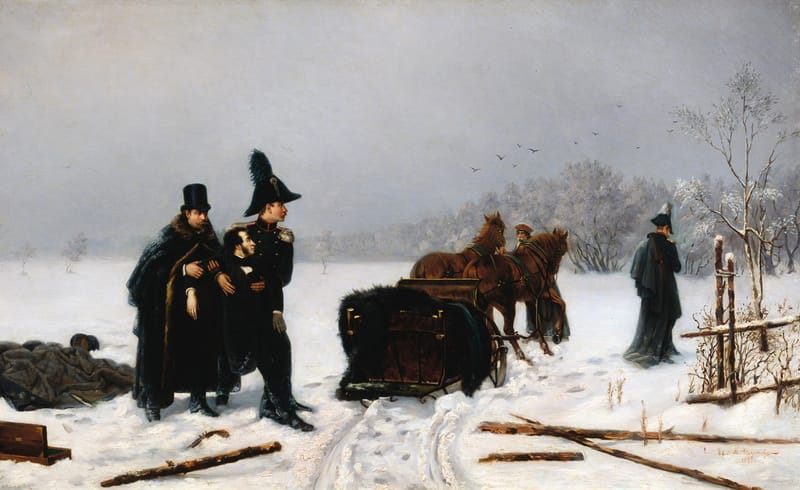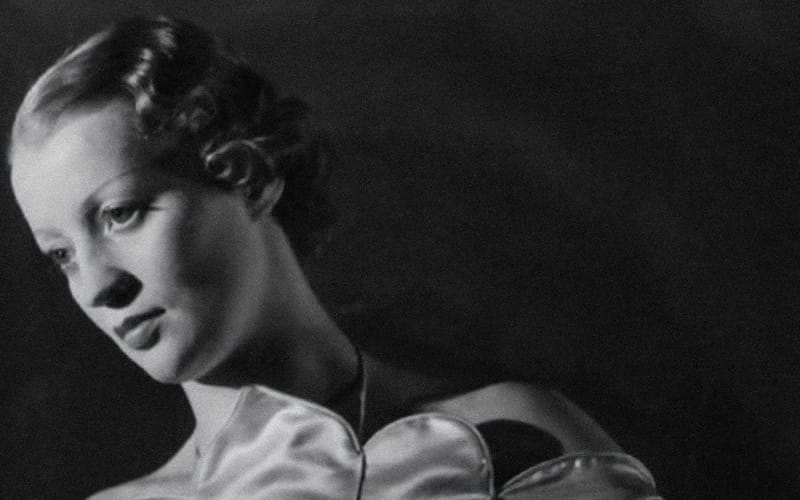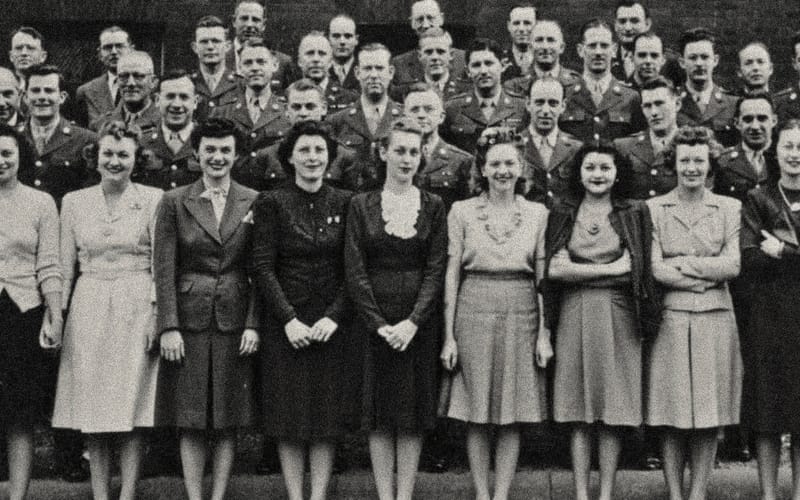Excerpt: The Flames by Sophie Haydock
The electrifying historical debut about four muses and the artist who shocked Vienna
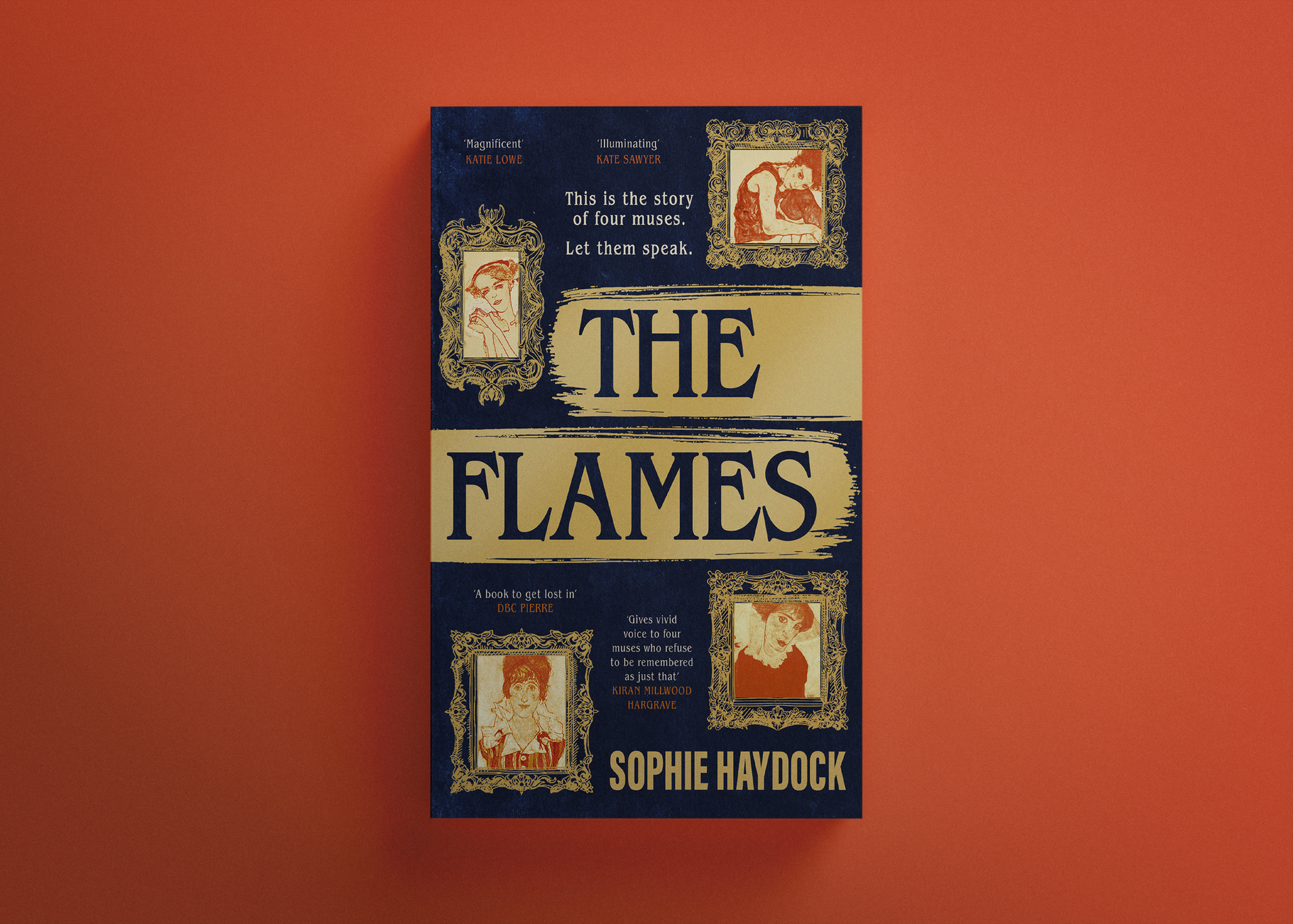
This is the story of four muses, women whose bodies were shown in intimate detail, depicted by the charming yet controversial Austrian artist Egon Schiele. But who were they?
The Flames reimagines the intertwining lives of these women: four wild, blazing hearts, longing to be known. In an elegant bohemian city like 1900s Vienna, everything seems possible. But just as a flame has the power to mesmerize, it can also destroy everything in its path...
With an exclusive foreword for Unseen Histories by Sophie Haydock

It was during a research trip Austria that I was told that one of Egon Schiele’s muses, Adele Harms, died aged seventy-eight, penniless, practically homeless, living on the streets of Vienna. This detail, recounted to me by the Schiele scholar Christian Bauer, sparked my imagination. I’d seen the paintings that Egon Schiele had made of Adele – in fact, I’d had a postcard of her (Seated Woman with Bent Knee, 1917) taped to my wall at university in Leeds, and I’d looked at it often, without worrying myself too much about the model’s name or relationship with the artist.
I’d been shocked, a decade later, in the Courtauld Gallery, to discover that Adele Harms had been the artist’s sister in law. In the artworks Schiele made of her, she can be seen posing in her stockings. She appeared beautiful, strong, if a little melancholy, with an intense kind of desire radiating from her eyes. Why was she looking at her sister’s husband in this way?
From my research, I knew that Adele had been an educated young woman from a good family, so how had she ended up, half a century later, in such dire circumstances?
This lead to the opening scene of my debut novel, ⇲ The Flames, in which we meet an elderly Adele, who is wandering the streets of the neighbourhood where she first encountered the charismatic artist as a young woman. She is involved in a collision, and this sparks a chain of events that will offer her resolution and redemption in her final days. Will Adele be able to make amends for the mistakes she made, which have haunted her for more than fifty years?
— Sophie Haydock
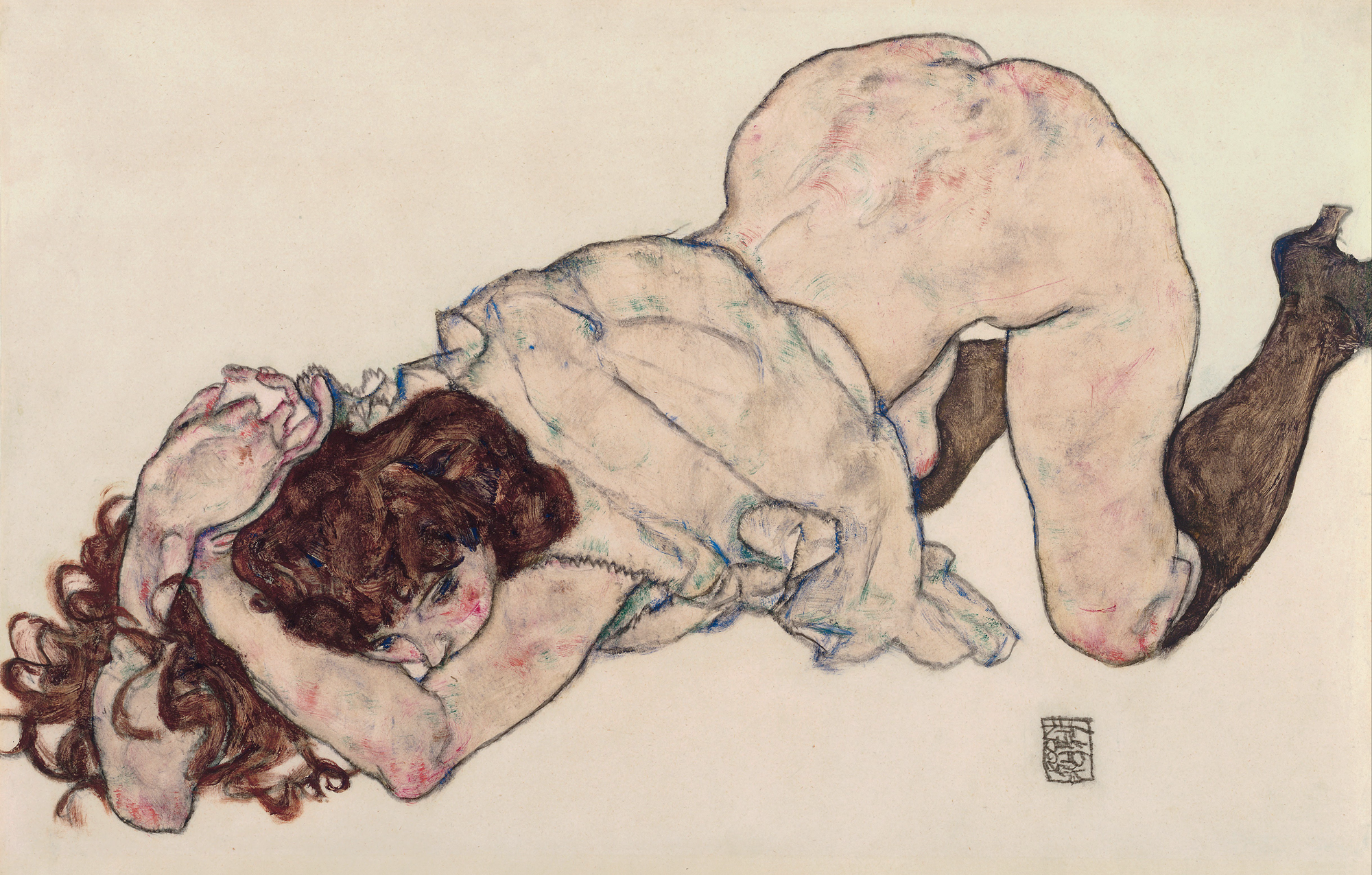

Saturday, 4 May 1968
An excerpt from The Flames by Sophie Haydock
The women crash together, a blur of twisted limbs and contorted faces. Eva opens her eyes to the lilac sky. There’s blood in her mouth, on her knuckles, and her corduroy dress is ripped. She curls in, wheezing, one hand on her stomach, then straightens her glasses, cursing the crack in one lens. She watches the wheel of her bicycle spinning its slow, ticking orbit. A form comes into focus, a few metres away – an old woman on the ground; her mouth ajar, misaligned teeth poking from behind flaccid lips.
It all comes back. The last thing Eva had seen in the seconds before the collision was a pair of watery eyes, widened. Hands raised to a mouth. The white-haired woman had appeared out of nowhere, dashing through a gap between parked cars, barging into her.
Eva had been distracted as she’d cycled home along this residential backstreet in Vienna’s leafy Hietzing district. She’d had an argument at lunchtime with the man she loved. They’d met in a coffee shop near where she worked as an assistant at a store selling second-hand books in a tourist crammed area of the Innere Stadt. But what should have been a moment for intimate revelation had become fraught with recrimination. Eva had run from the caf and her lover had let her go. She’d been rehashing the day’s argument, reliving the things she’d said, thinking about the things she should have disclosed. The next thing she remembered was the blurred flash of a figure running into her path.
She’d gripped the brakes, tried to swerve, but their momentum was unstoppable.
“Oh, no, are you hurt? Can you hear me?” Eva asks now, lowering herself to the woman’s wounded frame. “I’m so sorry! I didn’t see you until it was too late,” she adds.
The woman doesn’t move. Her silence is numbing.
Eva stares into the face of her victim, with its high cheekbones and sunken sockets. Blood oozes from the woman’s forehead, vivid against pale hair. Her skin is cool to the touch, a sickly mauve, and a pungent smell, like old soil, radiates off her. Eva notices the ragged clothes and black rimmed fingernails. A thin-soled shoe, lined with newspaper, has fallen off and the toe of the bared foot is ugly, its bunion oversized and ruby.
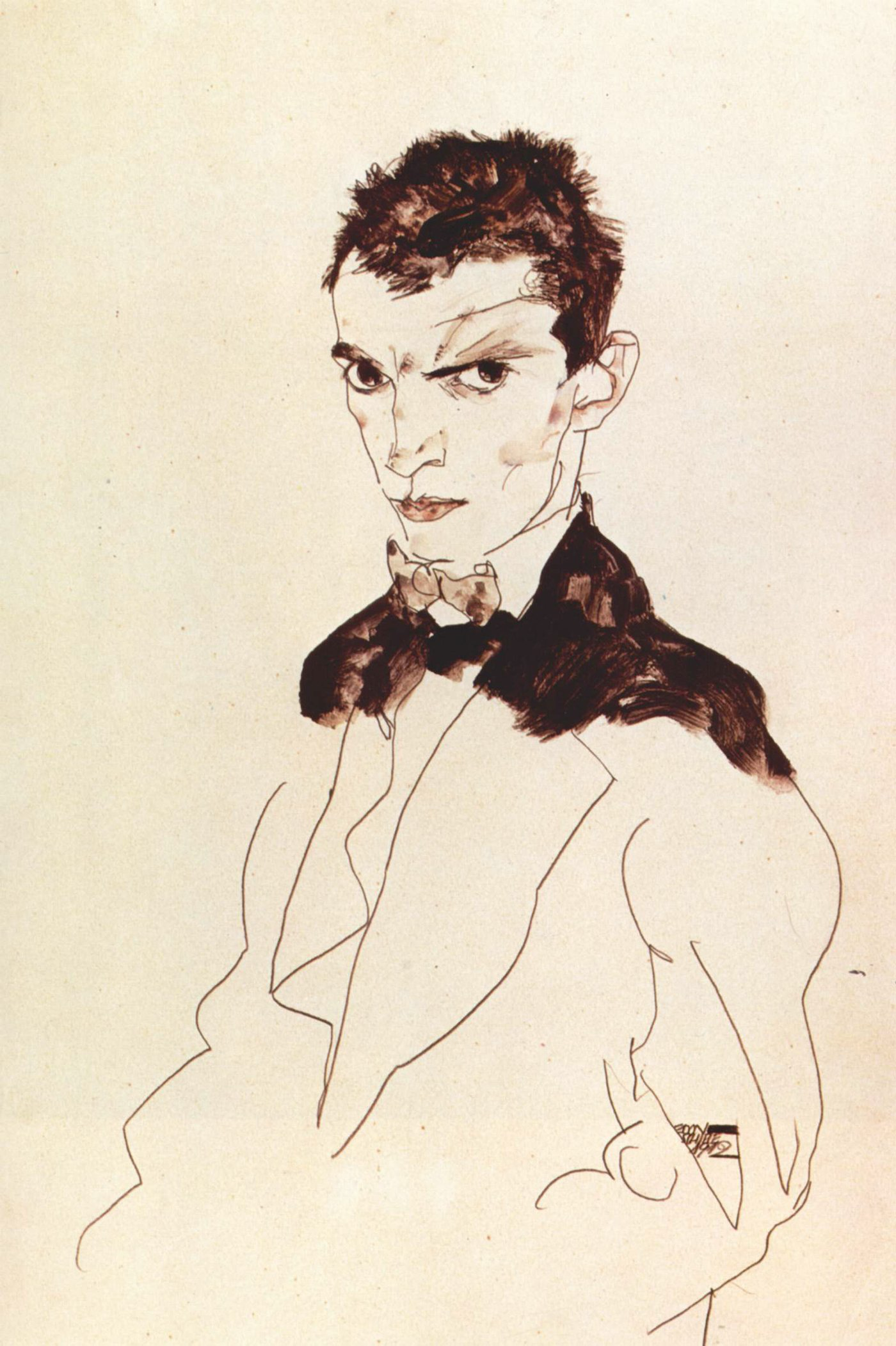
“I don’t know what to do,” Eva whispers, rubbing her dark hair from her eyes, willing herself to concentrate. She searches for a passer-by, anyone who might help them. A light appears in the window of one of the grand apartment buildings overlooking the street, but nobody appears. She staggers over and presses the dozen brass buzzers.
“Call for an ambulance, please!” she says into the intercom, but hears only static.
The skies are darkening and threaten rain.
Eva returns to the woman and leans in, her heart pounding, listening for any signs of life. She shakes her, gentle but insistent. Silvery moths loosen from the seams of the woman’s coat, startled by the light.
The bag the woman had been carrying is ripped, its contents scattered across the road. Eva searches for a clue to the woman’s identity. There’s a bundle of letters, tied in a ribbon, the cursive faded, but nothing else by way of identification.
Please, I beg of you, write to me, any response will do… Eva deciphers the old-fashioned handwriting on almost translucent paper. It’s unbearable to have this rift between us. I need forgiveness. Eternally, your loving sister…
“Edith?” Eva says, pocketing the letters, her eyes on the old woman once more.
It’s then that the muscles at the edge of the old woman’s lips flicker. Eva starts, encouraged by the movement. She grasps the old hands, which are rough like bark.
The woman’s eyelids flash open, revealing dilated pupils. A violent rasp comes from the victim’s mouth as she bares her gums. For an unspeakable moment, Eva believes this shrunken, injured stranger might be capable of sinking teeth into her flesh.
“Get your filthy hands off me!” the woman barks. “I’m not dead yet, you know! Even if you’ve damn-well given it your best shot.”
Eva backs away as the old woman struggles to her feet and brushes herself down, rubbing her elbow, then lower back.
“I was only trying to help,” Eva tries, by way of apology.
“You call this helping, do you?” The old woman tests her frame like a bird before flight. She puts a hand to her head and winces as she sees the blood on her fingertips. “You didn’t see me, did you?”
“You just came out of nowhere,” Eva replies.
“Oh, invisible, am I?”
“But you ran into me!”
“Fifty years I’ve been searching,” the white-haired woman fixes her with a razor-sharp glare. “Since before you were even born!” Her arthritic fingers move in a flourish. “And then you come along and knock me down, almost kill me, just as I lay eyes on her again.”
Eva feels as if they’re being watched and turns, but nobody’s there – only a tree with loose bark, beside a poster for an art exhibition, pasted to a white-washed wall.
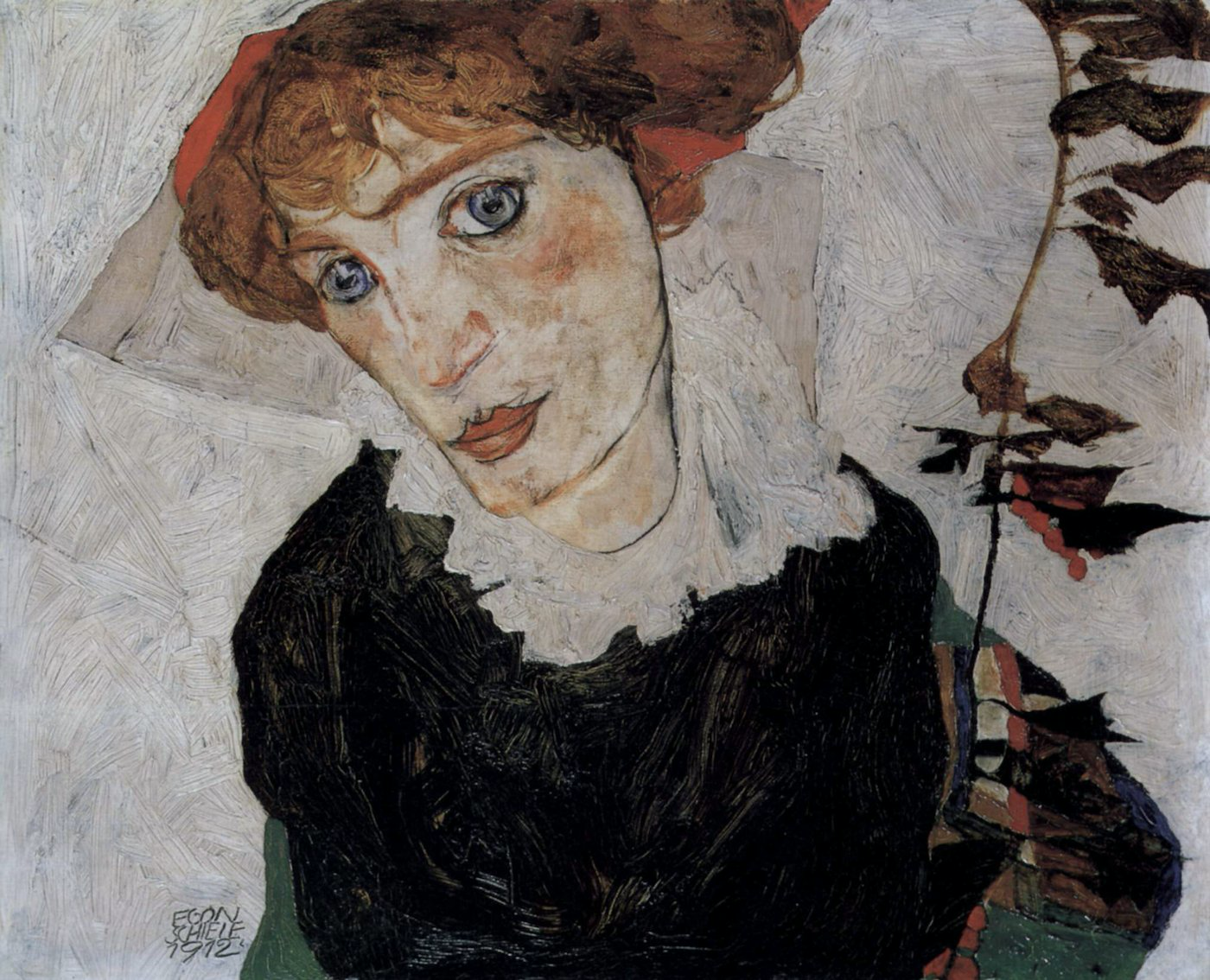
“You’ve no idea!” the older woman continues. “No idea at all. All the sacrifices I’ve made, everything I’ve suffered, the heartbreak, every day, searching for a single glimpse of her. Then finally, here she is, after all this time. Look, goddamn it! There she is, exactly as she has always been.” Her breathing is ragged and a sob punctuates her words. “I’m seventy-eight, with nothing to call my own. I’ve lost it all, ruined. If I were to lose her too, on top of everything…”
“Please, let me help you. What is it that you’ve lost?” Eva asks, disoriented by the weft of the stranger’s sentences, the peculiar desperation of her words.
Panic streaks across the old woman’s face as she dips her fingers down the front of her blouse. She fumbles for a moment, then the fear fades as she pulls out a chain. On it is a gold band. She clasps it, her eyes closed, pressing it to her lips.
The rain begins. Crows, cawing from the roof of the Schönbrunn Palace, rise and circle in flight.
“Edith?” Eva asks gently, touching the woman’s arm.
The old woman’s lip quivers “Whatever would you call me that for?”
“I saw your name on these letters,” Eva holds out the bundle and they are snatched away.
“You have no right to look at those!”
Eva is hurt and unsettled. She hears the unmistakable sound of an ambulance siren.
“With any luck, that’s coming for you,” Eva says, to reassure the woman, and herself. “Somebody must have called for help. She looks up at the windows of the apartment building. “They’ll want to take you to the hospital, just to check you over,” she adds. “You’ll get all the help you need there.”
“Genug! Nein!” the old woman shouts, jumping back and trembling. “I won’t go! You can’t make me!”
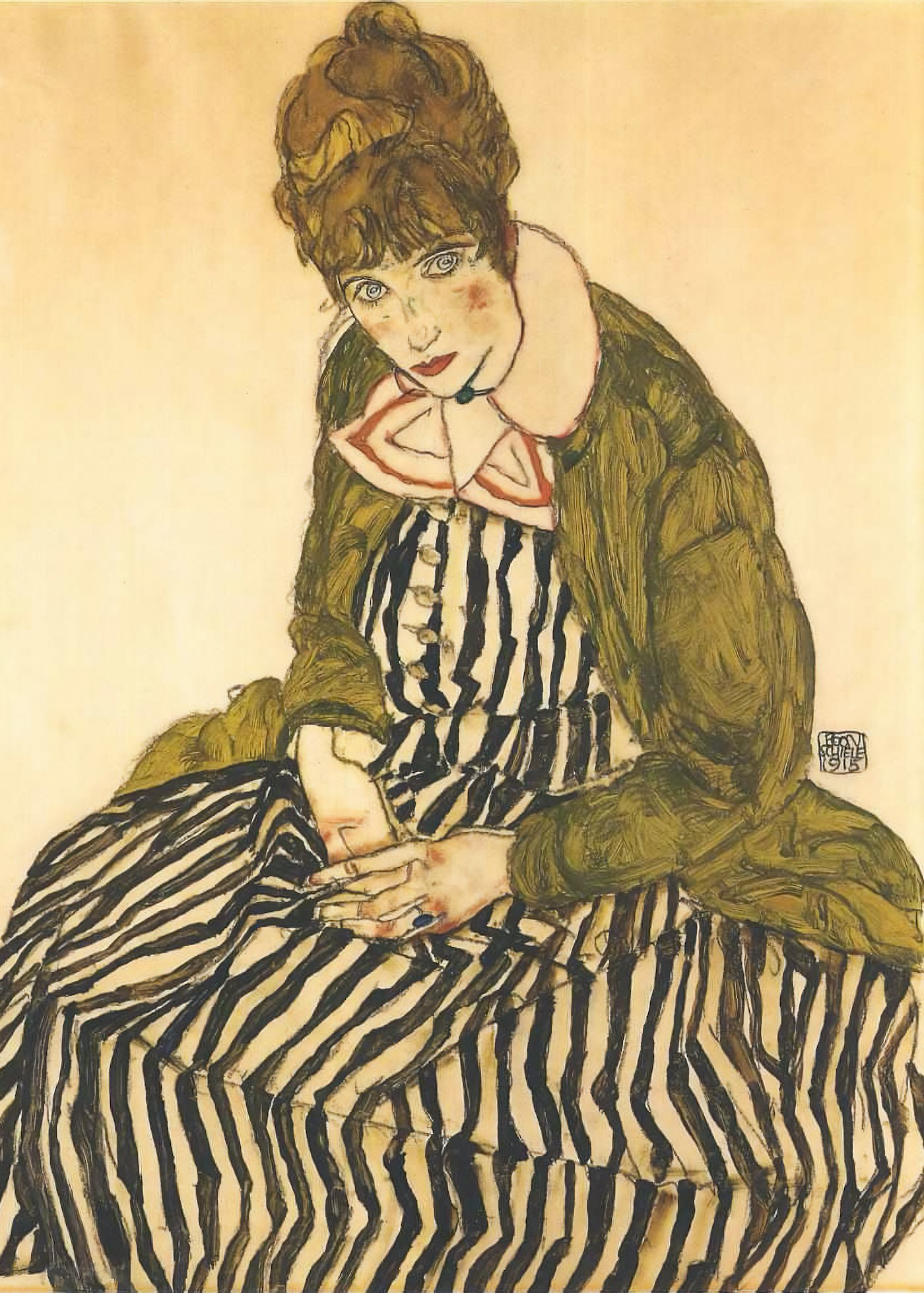
The blue light of the Rettungswagon reflects off the cobblestones as it turns into the street. Eva hurries over to the vehicle, as a driver and his assistant step out of it.
“There was an accident,” she explains to the two men. “I’m not hurt, at least I don’t think so,” she glances at her shoulder.
“But I cycled into that woman.” She gestures to the white-haired woman, who has hobbled over to the poster. “I knocked her to the ground. She wasn’t responding at first, she was out cold for a few minutes. I tried to help, but she’s not the type to accept it. She seems confused.”
“You’ve done what you can. We’ll see to her,” the driver replies.
The injured woman is pressing her hands against the exhibition poster. It depicts a young model, her cheeks flushed; an intense, uncertain look in her eyes.
“Junge Frau? Hello?” the man tries as he approaches. “How are you feeling? We can see that you’re hurt. Your head is bleeding. We need to take you to hospital. Let’s get you out of this rain, shall we?”
“Nein! Nein!” the woman says fearfully, recoiling.
“This is for your own good, meine Dame.” He places a hand on her shoulder.
“Get off me! Don’t you dare. You can’t make me go back there.”
“Come now, let’s not be like that. You must be in a lot of pain. We only want to help.”
“I’ve done without anyone’s help for long enough,” she snaps.
The two men flank her, their shoulders above her head, their feet planted, mouths set.
“We’ll take care of things from here,” they reassure Eva. “If you’re feeling well enough, you can go on home.”
They take the older woman by the arms and lead her towards the rear of the ambulance. They’re gentle but firm. But she is ferocious. She fights and twists, kicks and squirms. Her eyes lock onto Eva’s. “You, girl! Help me!” she shrieks as she’s forced through the vehicle’s doors. “Do something, please! I’ve nothing left! No one will help me! I didn’t make it up.” She thrusts a fist in the direction of the poster. “This proves it. I’m not mad! We existed. You can’t–”
The doors slam and that haunting glare is gone.
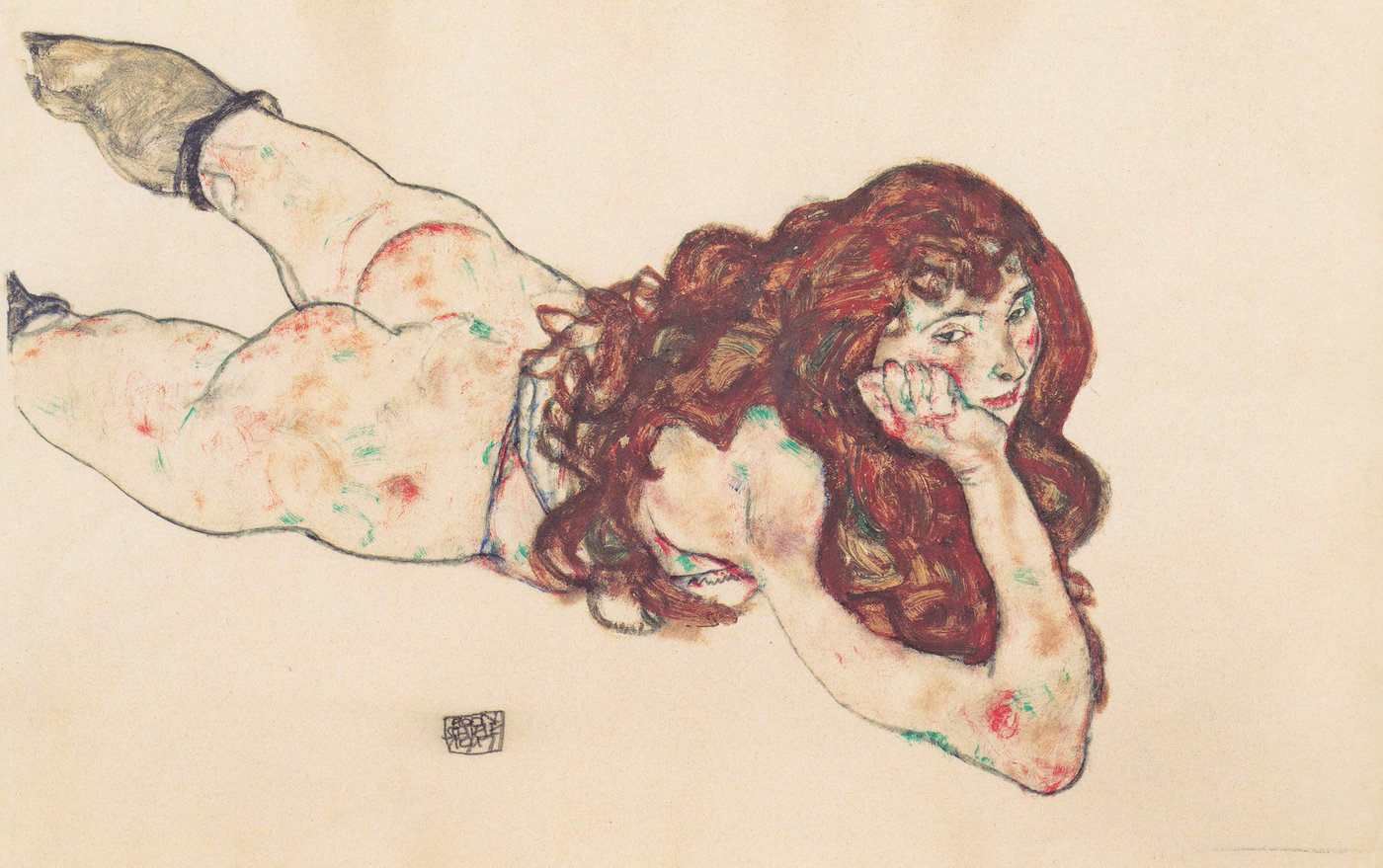
Eva is ashamed that she feels relieved. She has enough to deal with, without all this. Still, her heart is racing and she can’t shake a gnawing feeling of guilt. She tells herself she has helped this strange woman, but perhaps she has only succeeded in making things worse for her. Eva swallows and turns to the uncertain smile of the figure on the poster.
The driver starts the engine. “Wait! Stop!” Eva shouts. She runs over to the ambulance, banging a fist on the back. But the vehicle is moving, the siren starting up as it speeds away.
She has no name to go by.
Eva is exhausted, utterly spent, aware that the rain has soaked her to her bones. Her stomach aches in a new way. She considers her bicycle – another thing, along with her glasses, she can’t afford to repair. She will have to walk the broken frame home, a journey that’ll now be much longer than expected. She’ll find no words of reassurance there.
Then she sees it.
There, on the ground, between the cobbles, is a glint of gold. Eva bends to pick the object up. It’s a long, antique necklace. The clasp has been pulled apart but the chain is twisted around the scuffed metal of a round-edged band. It is still warm to the touch. Eva holds it up between her thumb and finger. Inscribed inside, in elegant cursive, are two initials: E & E.
Or is it E & A? The second letter isn’t clear. It looks as if it could have been scratched over, or reshaped, by the tip of something sharp.
The ring belongs to the old woman who ran into her. Eva only wants to forget her and get on with the rest of her life, as best she can, but she’s haunted by the rapture that had lit up the woman’s face as she held this item to her lips only moments before – and the terrified look in her eyes as she was locked away. Eva grips the band. The weight of it in her palm offers strange comfort. She knows how it feels to lose something, for a piece of you to be missing.
Eva accepts what she must do: somehow, soon, return the ring to its rightful owner.
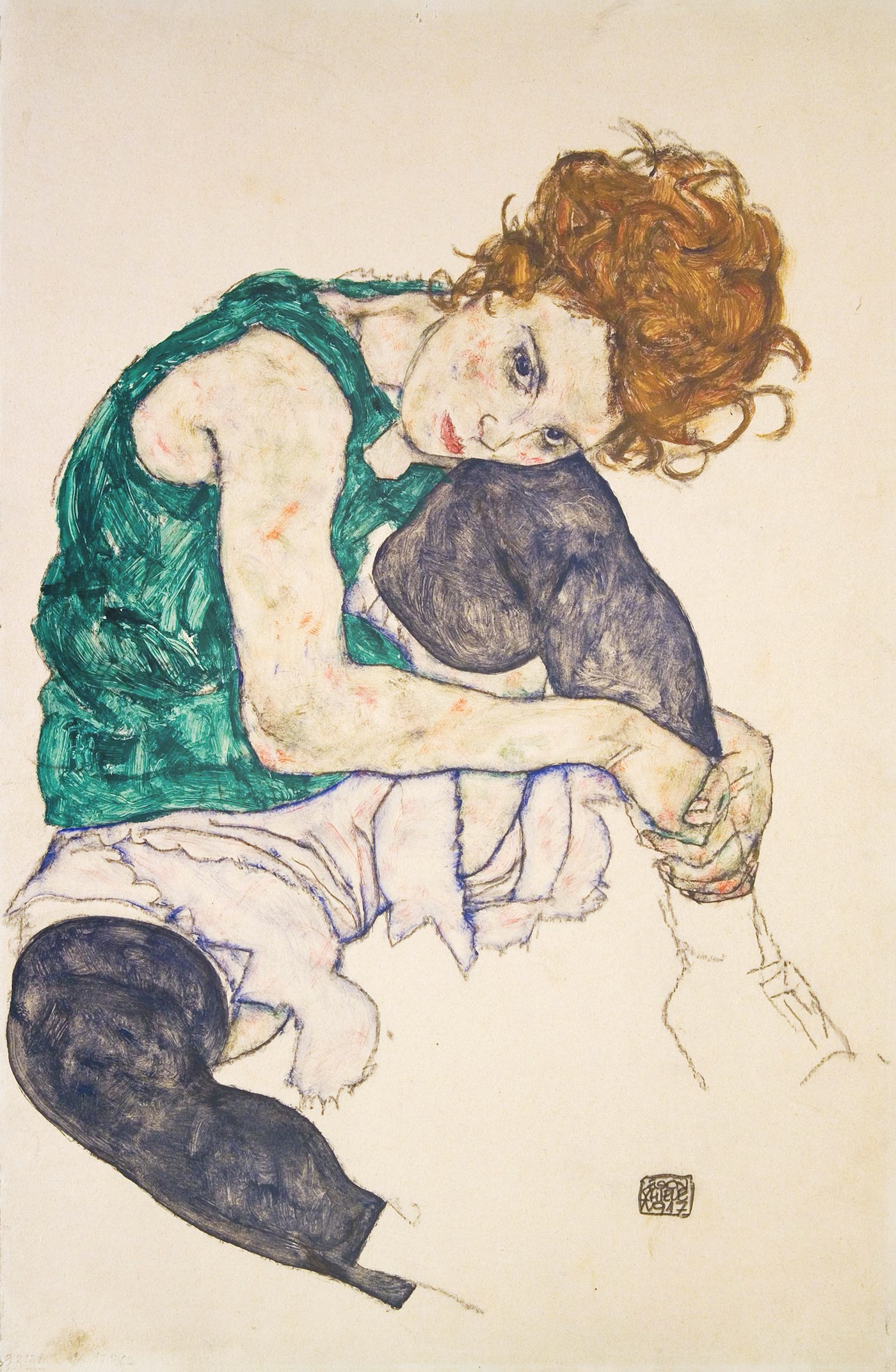

Inside the ambulance, the old woman is strapped quickly and gracelessly onto a stretcher and secured in place. As they speed towards the hospital, the siren continues its unholy wail, promising to part the traffic, carrying her away from the only thing that matters.
She aches with new-found knowledge. She was there, before her very eyes, after years of searching.
There’s a dull pain in her breast. And suddenly, a loud, insistent banging on the rear door of the ambulance. Above all the racket, that blasted plain-faced girl, the one who’d been dashing along on the bicycle, is demanding to know her name. But it’s too late for such things.
What did her name matter now? I could be anyone in this world for all anyone cares, she thinks. It has been decades since anyone wanted to know who she was. The last time a person spoke her name, the word was delivered as a bullet – an order, an insult, disgust stitched between its letters. Then it was forgotten entirely.
Did she ever really exist? Yes. She knows that now. And her life before…
As the stretcher is pulled from the ambulance, she can’t help but hear a dreamy echo of her name’s three lilting syllables, like champagne bubbles popping on her tongue.
She remembers it the way he said it. The thrill of it being whispered, the promise once carried within it, the desire she knows it provoked. The phantom sound touches a space that has long been numb: the part of her that holds the capacity for joy.
“Adele?” she remembers, in a wave of wonder, as a face peers down at her. “A-del-e,” she repeats and her consciousness begins to drift, a smile across her bloodied, torn face. “Why, yes, that’s it. My name, if you must know, is Adele. Adele Harms. And don’t you damn-well ever forget it.” ■

The Flames: A gripping historical novel set in 1900s Vienna, featuring four fiery women
Doubleday, 17 March 2022
RRP: £16.99 | 464 pages | ISBN: 978-0857527622
Vienna at the dawn of the 20th century. An opulent, extravagant city teeming with art, music and radical ideas. A place where the social elite attend glamorous balls in the city's palaces whilst young intellectuals decry the empire across the tables of crowded cafes. It is a city where anything seems possible - if you are a man.
Edith and Adele are sisters, the daughters of a wealthy bourgeois industrialist. They are expected to follow the rules, to marry well, and produce children. Gertrude is in thrall to her flamboyant older brother. Marked by a traumatic childhood, she envies the freedom he so readily commands. Vally was born into poverty but is making her way in the world as a model for the eminent artist Gustav Klimt.
None of these women is quite what they seem. Fierce, passionate and determined, they want to defy convention and forge their own path. But their lives are set on a collision course when they become entangled with the controversial young artist Egon Schiele whose work - and private life - are sending shockwaves through Vienna's elite. All it will take is a single act of betrayal to change everything for them all. Because just as a flame has the power to mesmerize, it can also destroy everything in its path...
“Glorious.” — Guardian
"Intoxicating and evocative...full of controversy and drama. We loved it." — Woman & Home
“A drama of love, loss, rivalry and betrayal. A terrific debut, brilliantly imagined.” — Saga Debut of the Month

Sophie recommends:
⇲ Schiele in Prison by Alessandra Comini (Sunstone Press, 2016)
In the 1960s, as a student, Comini was the first person to document Schiele’s life, fifty years after his death. She photographed the cell in Neulengbach where he’d been imprisoned – and this non-fiction book includes those photographs as well as Schiele’s diaries from that period.
Pornographer of Vienna by Lewis Crofts (Old Street Publishing, 2007)
This is a gripping fictional account of Schiele’s life – from his childhood, where his strict father tried to beat the urge to draw out of his son, as it was affecting his grades, to his time in Vienna, making a name for himself as one for the greatest artists of the twentieth century.
Arrogance by Joanna Scott (Little, Brown, 1991)
This is literary fiction that focuses on the most scandalous and traumatic period of the artist’s life – the twenty-four days in which he was imprisoned in a village jail on charges of seducing the young girls who modelled for his controversial sketches.
Egon Schiele’s Women by Jane Kallir (Prestel, 2012)
Jane Kallir, co-director of the Galerie St Etienne in New York, is a Schiele expert. Her grandfather, Otto, published the first catalogue raisonné of Schiele’s work in 1930, which she updates. This book is a collection of artworks and essays on the women in Schiele’s life.
Illustrative material for this excerpt is not necessarily included in the book.

Additional Credit
With thanks to Tabitha Pelly and DoubleDay. Author Photograph © Desiree Adams at Penguin RandomHouse.


